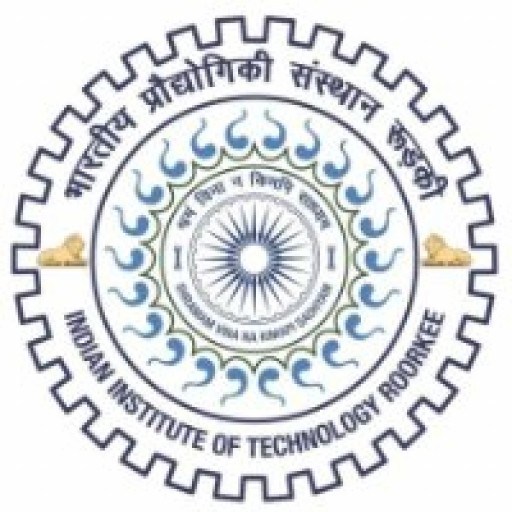Photos of university
Earthquake Engineering is a specialized discipline within structural engineering focused on understanding, analyzing, and mitigating the effects of earthquakes on built infrastructure. The program at the Indian Institute of Technology is designed to equip students with comprehensive knowledge of seismology, structural dynamics, and seismic design principles. Students will learn about earthquake risk assessment, seismic hazard analysis, and the development of earthquake-resistant structures. The curriculum combines theoretical coursework with practical applications, including laboratory work, computer modeling, and real-world case studies of earthquake-resistant construction. Advanced topics such as base isolation, energy dissipation devices, and performance-based design are also covered to enable students to innovate in the field of seismic resilience. The program aims to produce graduates capable of designing safe and sustainable structures capable of withstanding seismic forces, contributing significantly to disaster risk reduction and infrastructure safety. Through interdisciplinary collaboration and research, students will explore innovative solutions for earthquake mitigation, life safety, and structural integrity. The program also emphasizes the importance of understanding local seismic activity and implementing context-specific engineering practices. With a focus on both fundamentals and cutting-edge technologies, the Earthquake Engineering program prepares students for careers in academia, industry, and governmental agencies dedicated to earthquake preparedness and resilience. Graduates will be well-equipped to contribute to national and international efforts in earthquake risk management, structural safety enhancements, and disaster response planning. The program fosters a strong foundation in engineering principles while promoting research and innovation to address the ongoing challenges posed by seismic hazards worldwide.
Contents:
1. Vibrations and the nature of time dependent phenomena, inertia, dynamic equilibrium and mathematical models of physical systems; Energy storing and dissipation mechanisms.
2. Dynamics of Single Degree of Freedom Systems, undamped and damped, free and forced vibrations; Steady-state and transient response, impulse response.
3. Harmonic response and applications to vibration isolation; theory of seismic pickups: Seismometers, accelerometers.
4. Convolution integral and solution of equation of motion; Numerical methods for solution of linear and non-linear equations of motion; response/shock spectra; Fourier transforms and analysis in frequency domain.
5. Dynamics of Multi-Degree of Freedom Systems, Lagrange’s equations; equations of motion for MDOF systems; Algebraic eigenvalue problem and free vibration analysis; Undamped and damped normal modes; Mode superposition method for dynamic analysis of linear systems; Modetruncation and correction for the missing mass.
6. Dynamics of Continuous Systems, Hamilton’s principle; Axial and transverse vibrations of beams, torsional vibrations of shafts; Normal modes; Free and forced vibration analysis by mode superposition; Vibrations of elastic halfspace.
7. Approximate Methods for Vibration Analysis, Rayleigh quotient, rayleighritz method.
Students admitted to the graduate programs of study at IIT Roorkee go through a process of selection prior to their admissions. The process of selection is administered at the national (All India) level or at the Institute depending on the program of study. For detailed information of the Institute and different programs, download the information brochure given below.
GATE (Graduate Aptitude Test in Engineering), The Graduate Aptitude Test in Engineering is an All - India Examination conducted by the seven IITs and IISc Bangalore, on behalf of the National Coordinating Board - GATE, Department of Education, Ministry of Human Resources Development (MHRD), Government of India.
JAM (Joint Admission Test to M.Sc) for admission to M.Sc programmes at the IITs. From year 2005 admissions to MCA programme at IIT Roorkee are also made through JAM which were previously through AIMCET.
This Institute offer courses leading to two-year Master of Science degrees in a number of disciplines. In addition, post-graduate programmes leading to M.Tech., M.Sc. and Ph.D. degrees are also offered.
The Institute offers merit-cum-means scholarship to 25% of undergraduate students. Several other scholarships are announced from time to time. Bank loans are also easily available whenever required. Financial help is provided as Institute free studentship and scholarships to undergraduate students belonging to the scheduled castes and scheduled tribes.
Students admitted to the 2-year M.Sc. degree in sciences are also awarded merit-cum-means scholarships. A number of scholarships, teaching / research assistantship schemes provide financial support to students of M.Tech. and Ph.D. programmes. Sponsored (full-time as well as part-time), self-financing foreign students and M.B.A. students are , however, not eligible for benefits of this scheme. Students are encouraged to earn while they learn.
Prizes and certificates are given to students on the basis of their performance in curricular, co-curricular and extra curricular activities.
The Earthquake Engineering program at the Indian Institute of Technology (IIT) is a specialized postgraduate course aimed at developing expertise in the analysis, design, and mitigation of earthquake-resistant structures. This program integrates theoretical foundations with practical applications to prepare students to address challenges related to seismic hazards. The curriculum encompasses core subjects such as seismic hazard assessment, structural dynamics, ground response analysis, and the design of earthquake-resistant buildings and infrastructure. Students also engage in advanced topics like structural health monitoring, retrofitting techniques, and earthquake risk management. The program emphasizes hands-on learning through laboratory work, computer simulations, and field investigations, providing students with practical skills necessary for research and industry practice. Faculty members are distinguished researchers and practicing engineers specializing in seismic analysis, structural engineering, and disaster management, ensuring that students receive instruction grounded in the latest industry standards and scientific advancements. The program encourages interdisciplinary collaboration, drawing on expertise from geotechnical engineering, materials science, and urban planning to foster a comprehensive understanding of earthquake resilience. Graduates of this program can pursue careers in academic research, governmental and non-governmental disaster management agencies, consulting firms, and construction industries, contributing to safer infrastructure development in seismically active zones. The program also includes opportunities for internships and collaborative projects with industry and government organizations, facilitating practical exposure and professional networking. Admissions are typically based on academic merit and relevant entrance examinations, with prerequisites including a background in civil or structural engineering. The institution continually updates its curriculum to reflect emerging seismic research and advances in construction technology, ensuring that graduates are well-equipped to innovate in earthquake preparedness and mitigation strategies worldwide.








